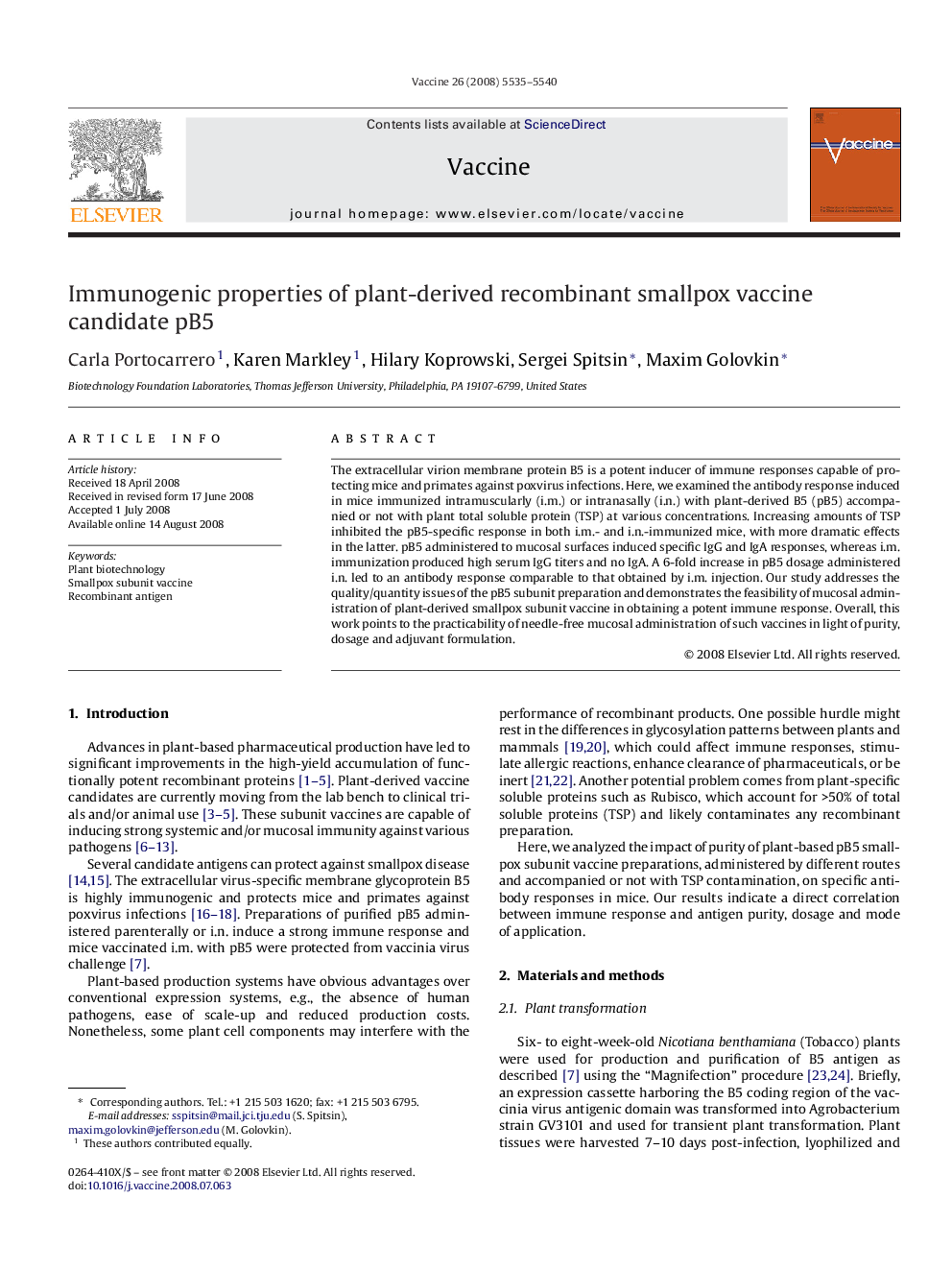| Article ID | Journal | Published Year | Pages | File Type |
|---|---|---|---|---|
| 2407789 | Vaccine | 2008 | 6 Pages |
The extracellular virion membrane protein B5 is a potent inducer of immune responses capable of protecting mice and primates against poxvirus infections. Here, we examined the antibody response induced in mice immunized intramuscularly (i.m.) or intranasally (i.n.) with plant-derived B5 (pB5) accompanied or not with plant total soluble protein (TSP) at various concentrations. Increasing amounts of TSP inhibited the pB5-specific response in both i.m.- and i.n.-immunized mice, with more dramatic effects in the latter. pB5 administered to mucosal surfaces induced specific IgG and IgA responses, whereas i.m. immunization produced high serum IgG titers and no IgA. A 6-fold increase in pB5 dosage administered i.n. led to an antibody response comparable to that obtained by i.m. injection. Our study addresses the quality/quantity issues of the pB5 subunit preparation and demonstrates the feasibility of mucosal administration of plant-derived smallpox subunit vaccine in obtaining a potent immune response. Overall, this work points to the practicability of needle-free mucosal administration of such vaccines in light of purity, dosage and adjuvant formulation.
